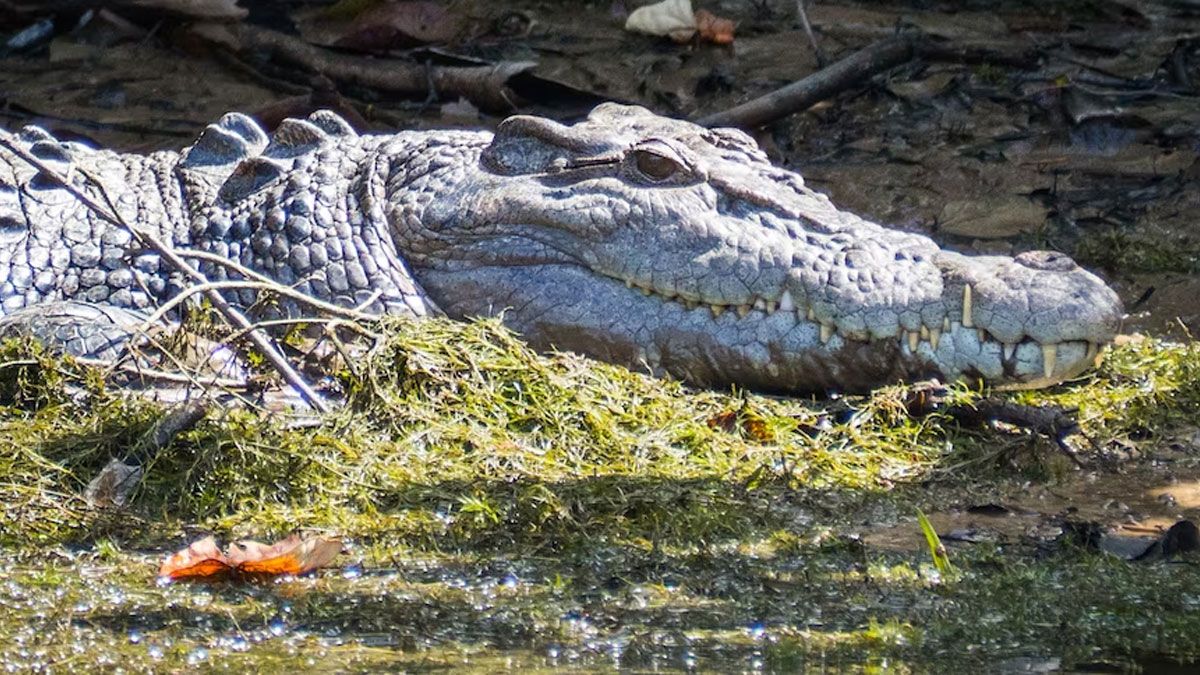
A new crocodile detection device will be rolled out and experts in human behaviour change will be called in as the Queensland government tries to reduce the risk of crocodile attacks around waterways.
Last week, the state recorded its first fatal crocodile attack in more than two years when 65-year-old Cape York publican Kevin Darmody was taken while fishing along the Kennedy River in Rinyirru (Lakefield) National Park.
The Queensland government has subsequently announced more than $4 million will be spent over the next three years on new crocodile safety measures.
They include the installation of new barriers around certain high-risk waterways and the development of an updated CrocWise strategy, with input from First Nations people and behaviour-change experts.
The government also intends to develop a device that can reliably detect saltwater crocodiles underwater using sonar and artificial intelligence software.
Environment Minister Meaghan Scanlon said the detection devices would be placed at busy boat ramps, with light signals to alert those on the water to the presence of crocodiles.
"I'm hoping that will be off the ground as soon as possible," she said.
New deterrents under consideration
Ms Scanlon will also soon meet conservationists campaigning for the introduction of new penalties for those who recklessly expose themselves to the risk of crocodile attacks.
Earlier this year, a Northern Territory man was bitten and his dog killed after he wandered down a boat ramp into the Bloomfield River.
Wildlife officers killed the crocodile responsible.
The proposal backed by the Environmental Defender's Office and Bob Irwin, son of the late Steve Irwin, has been likened to the fines in place for those who feed dingoes on the island of K'Gari (Fraser Island).
"The department is looking at what options are available, but my message is … please pay attention to the signage and please don't be reckless in your behaviour," Ms Scanlon said.
However, the minister ruled out a crocodile cull, saying it would create "a false sense of security in the community" with "no evidence" to suggest it would work.
"I think it's really important in all of these discussions that we look at the data and the evidence, and that is that we have a fairly stable population, and we need to make sure we manage that population effectively," Ms Scanlon said.
Rethinking the message
Peter Scott, mayor of Cook Shire, where three of the most recent crocodile attacks have occurred, said existing crocodile warning signage seemed "to be outdated or just taken for granted".
"People just get so used to seeing these signs, they're not taking much notice of them, so we've got to rethink how we're getting the message across," he said.
"Having said that, it's not usually the tourists who get attacked or taken by crocodiles.
"It's often the locals who just get blasé or complacent about where they live or what they should be doing."
Mr Scott said visitors to Cape York needed to remember "there are things that can hurt you and it's not like your backyard in Cairns, Brisbane or Sydney".
"It's actually the numbers of people coming up this way and into these remote areas that's increasing all the time and that's what's increasing the risk," he said.
Story by Christopher Testa
Original story link https://www.abc.net.au/news/2023-05-09/crocodile-detection-devices-behaviour-experts-boost-safety-qld/102318196
Stay tuned for the latest news on our radio stations
